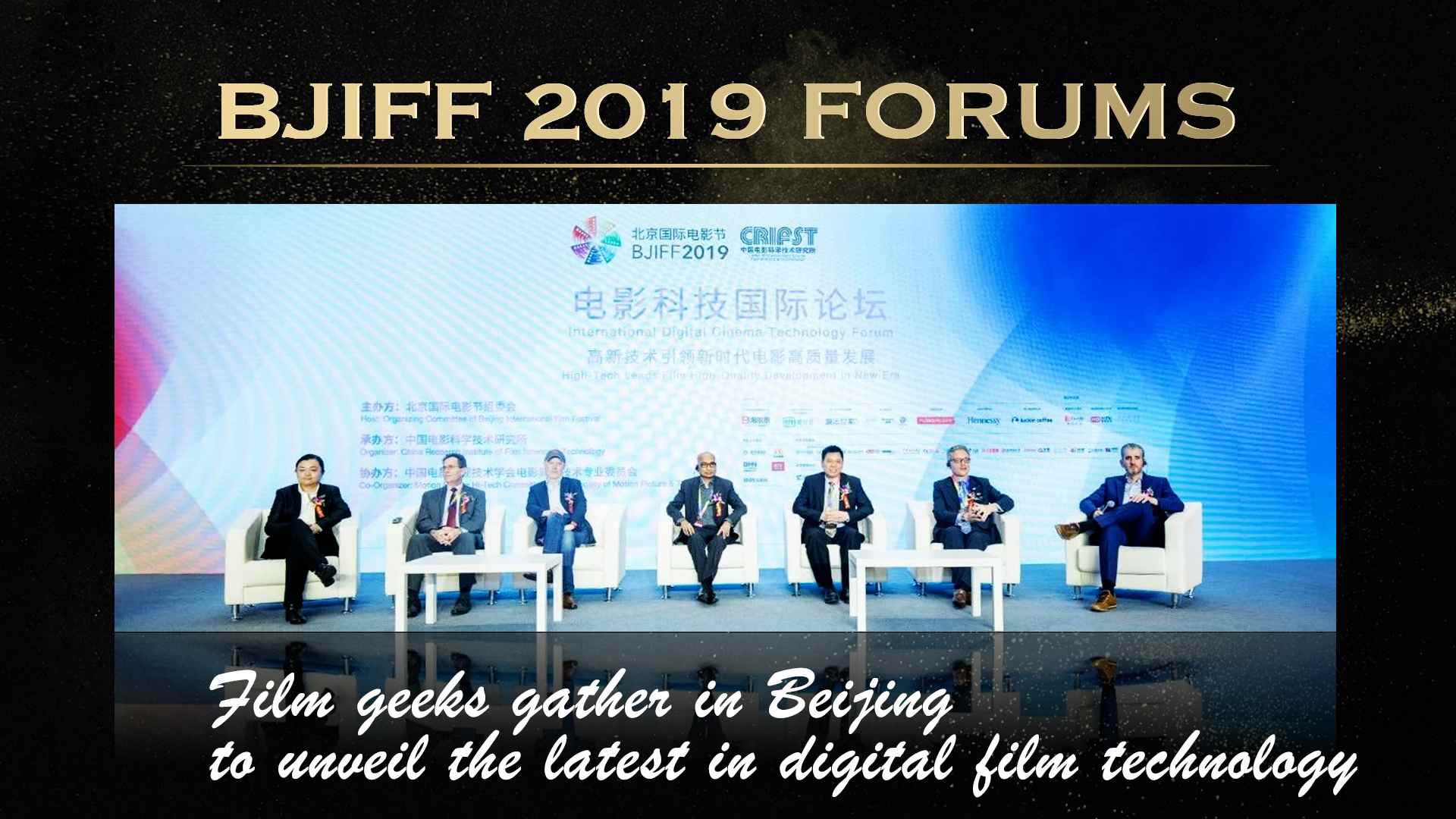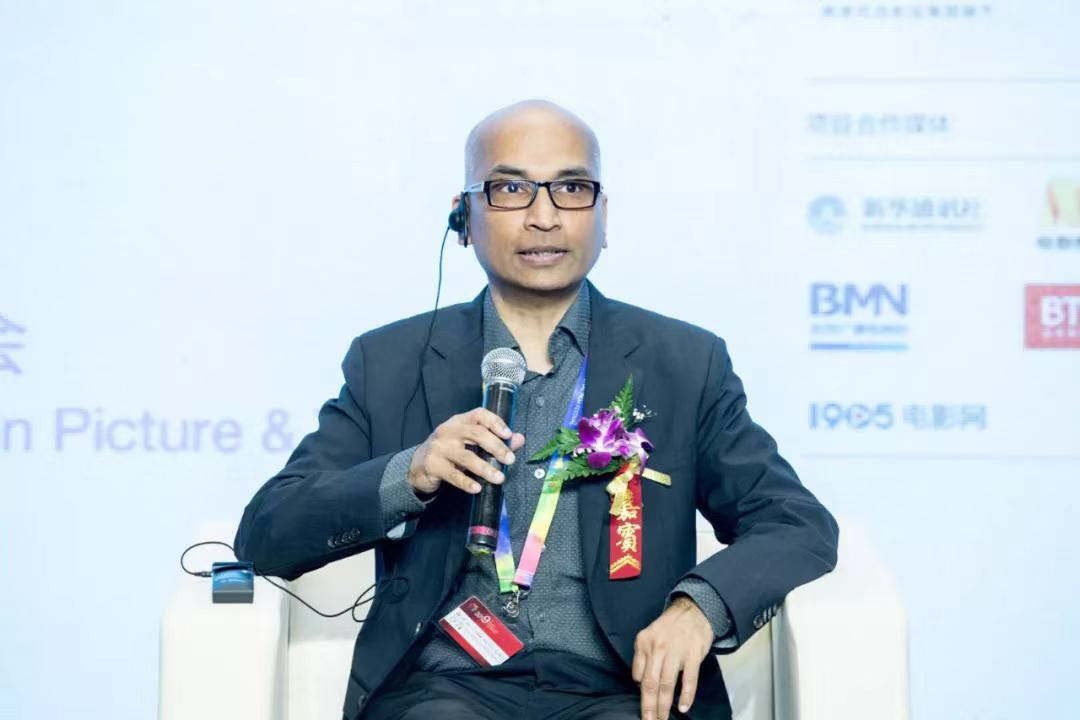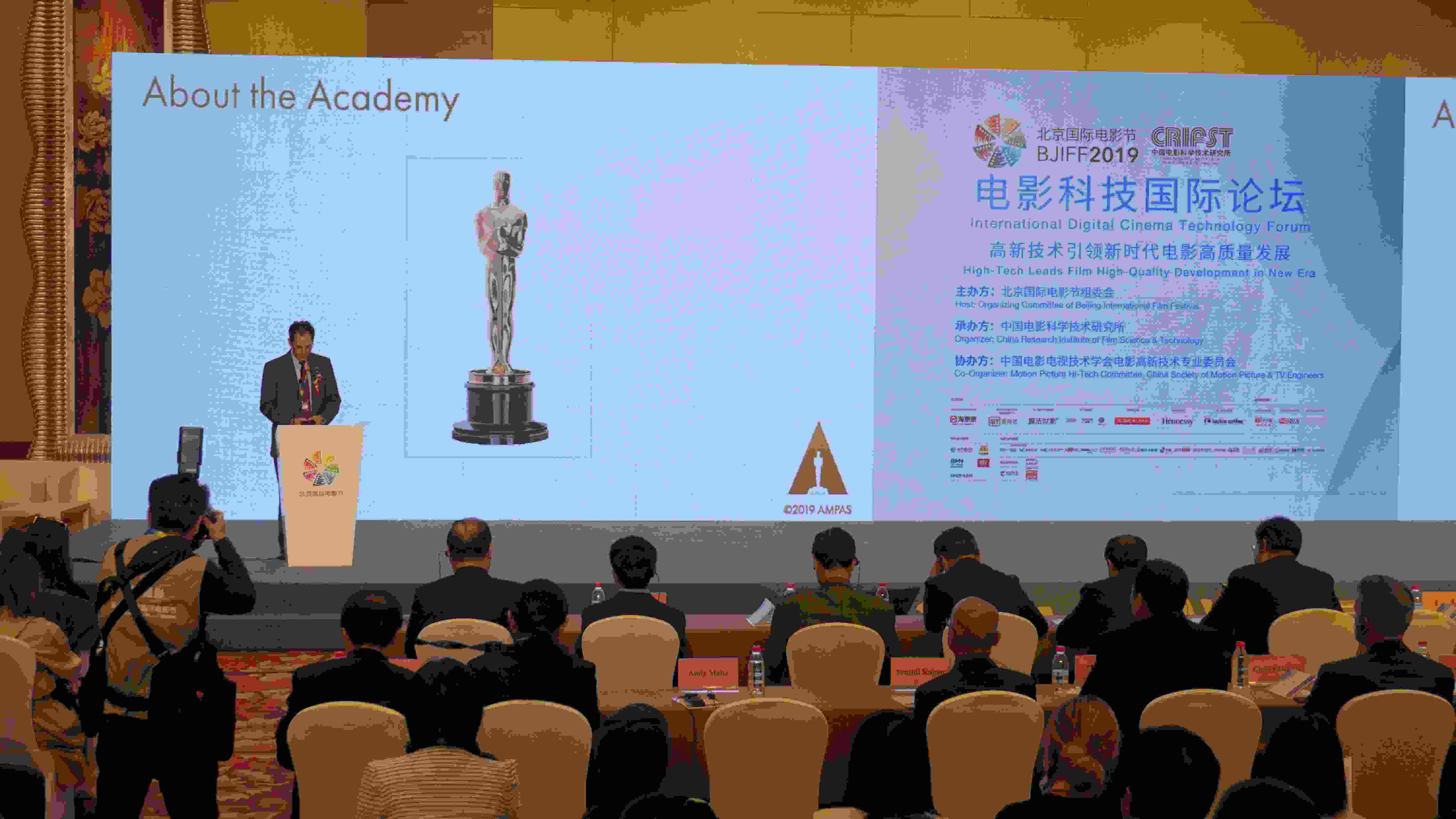
Domestic
10:34, 17-Apr-2019
Film geeks gather in Beijing to unveil the latest in digital film technology
Updated
11:41, 17-Apr-2019
Liu Chen

"Cinema is the only art form that is dependent on technology," said Andy Waltz, the managing director of the Academy of Motion Picture Arts and Science in the U.S., as he stressed the power of technology in film production during the International Digital Cinema Technology Forum on Tuesday.
Whether you agree or not, technology enables filmmakers to be more creative in terms of both production and presentation.

CGTN Photo
CGTN Photo
At the 9th Beijing International Film Festival (BJIFF), the committee officially announced the launch of the China Movie Production Cloud Platform at the start of the tech forum. Then, domestic and overseas speakers delivered speeches with the theme of "high-tech leads to high-quality film development in the new era."
They focused on the new trends and features in film industry development, the emerging technologies, and new needs for digital cinema technologies, and gave their opinions toward the application of cutting edge visual and auditory technologies in the global film industry.

CGTN Photo
CGTN Photo
"Technology is enabling filmmakers to be more productive, making the film industry more inclusive than ever before," Ma Ping, the deputy director of the Motion Picture Hi-Tech Committee, said in a speech to the forum. "In the future, people may communicate more through pictures and videos."
Ma also spoke about how an AI system can help restore old pictures and movies by recreating human faces and rejuvenating colors for added brightness, allowing for the creation of new high definition and ultra-high definition editions.
Waltz then introduced their color encoding system and open source software. He emphasized that film making is a fast changing process and cinema standards can help the art form to thrive on a global basis.

Senthil Kumar /BJIFF Photo
Senthil Kumar /BJIFF Photo
Apart from in film production, how is technology changing the cinema business? Speaker Senthil Kumar, the co-founder of Qube Cinema in India, and Patrick von Sychowski, the co-founder and editor of CelluloidJunkie.com in the UK both mentioned the importance of the ongoing cinematic revolution of the digital era.
Kumar gave a blueprint of a perfect world of digital cinema where "movie rights are tracked perfectly; movie tickets sales, inventory and scheduling systems are tightly integrated and audiences can watch whatever they want, whenever they want and wherever they want."
Kumar stressed in his speech that building up a coordinated database is one of the key ways to make a perfect digital cinema.

CGTN Photo
CGTN Photo
Meanwhile, Sychowski pointed out that, if cinema operators want to pursue people and make them put away their phones for two hours and watch films in the theater, they should also make sweeping changes to the medium, ranging from the lobby to the seats to the screen itself.
Improving sound and picture quality, and creating a pleasant "cinema journey" for audiences are two key ways to bridge the gap between the phone and cinema, according to Sychowski.

SITEMAP
Copyright © 2018 CGTN. Beijing ICP prepared NO.16065310-3
Copyright © 2018 CGTN. Beijing ICP prepared NO.16065310-3